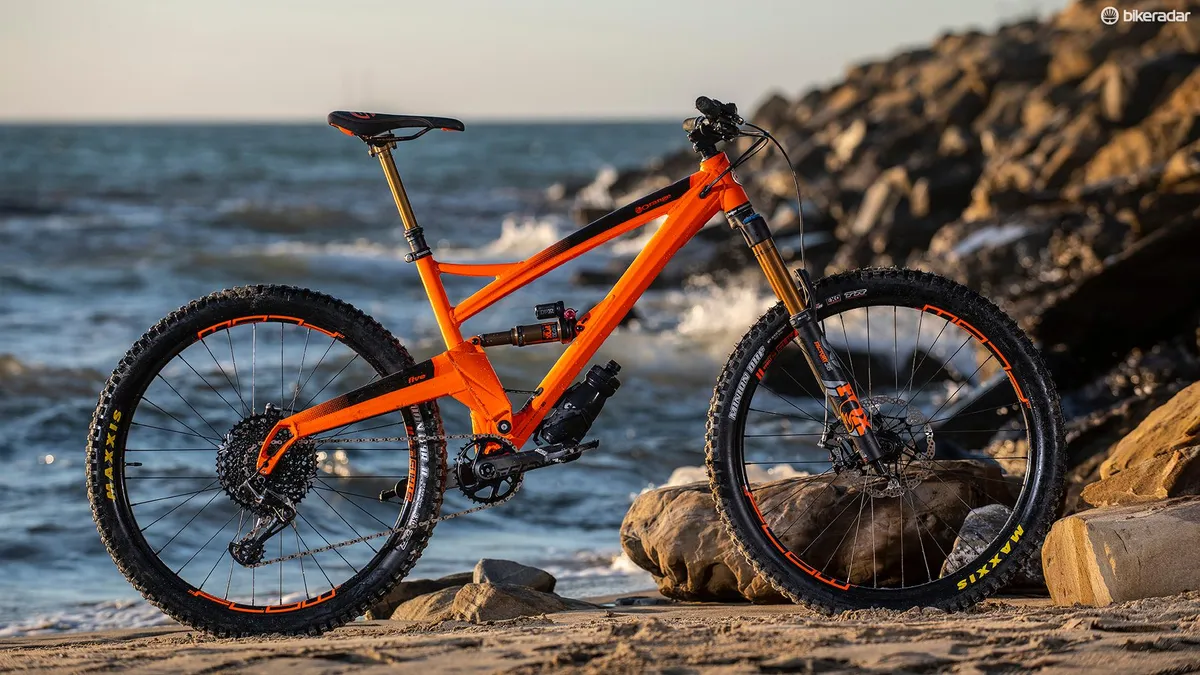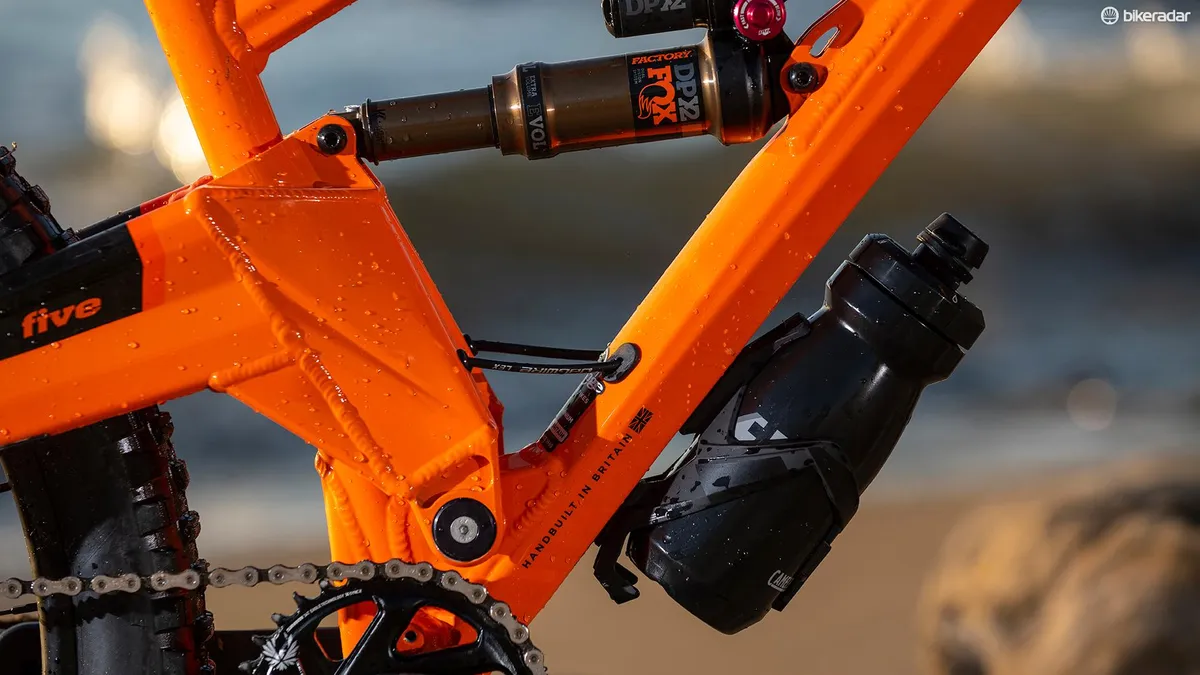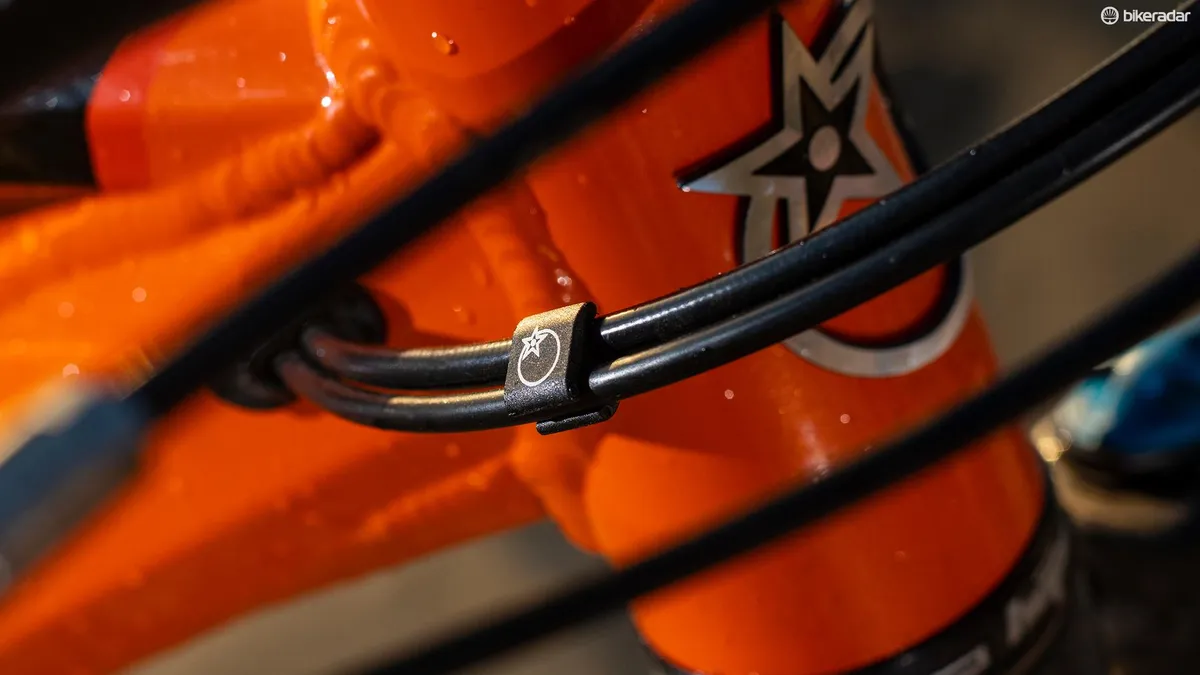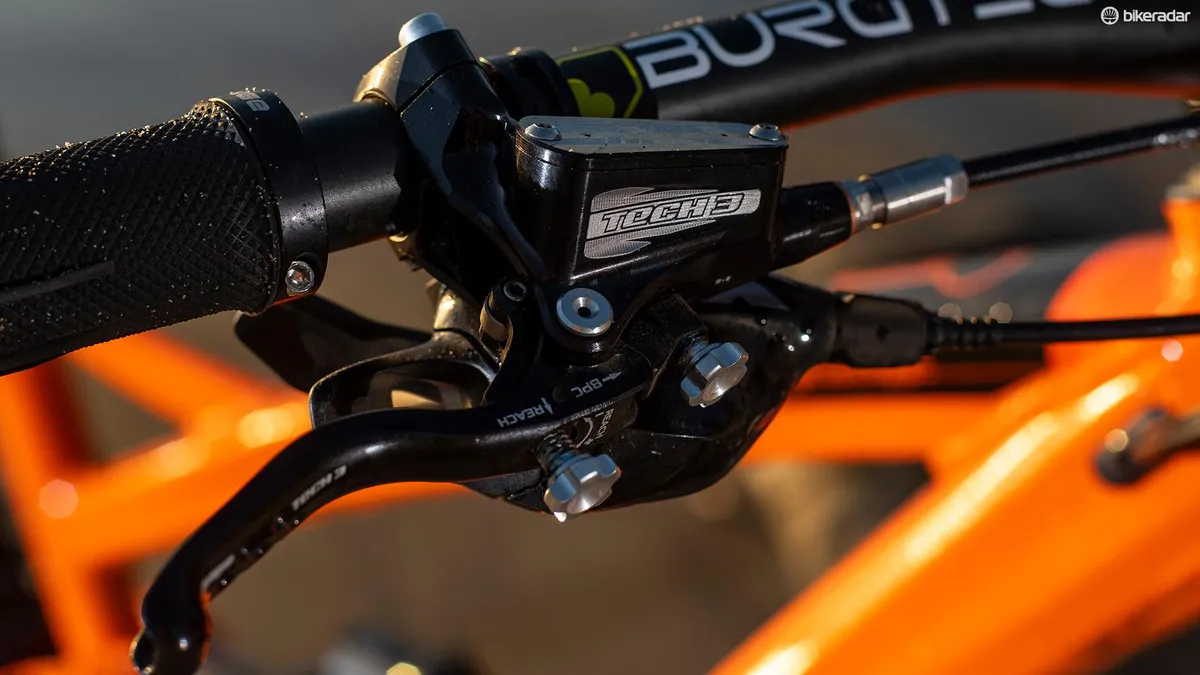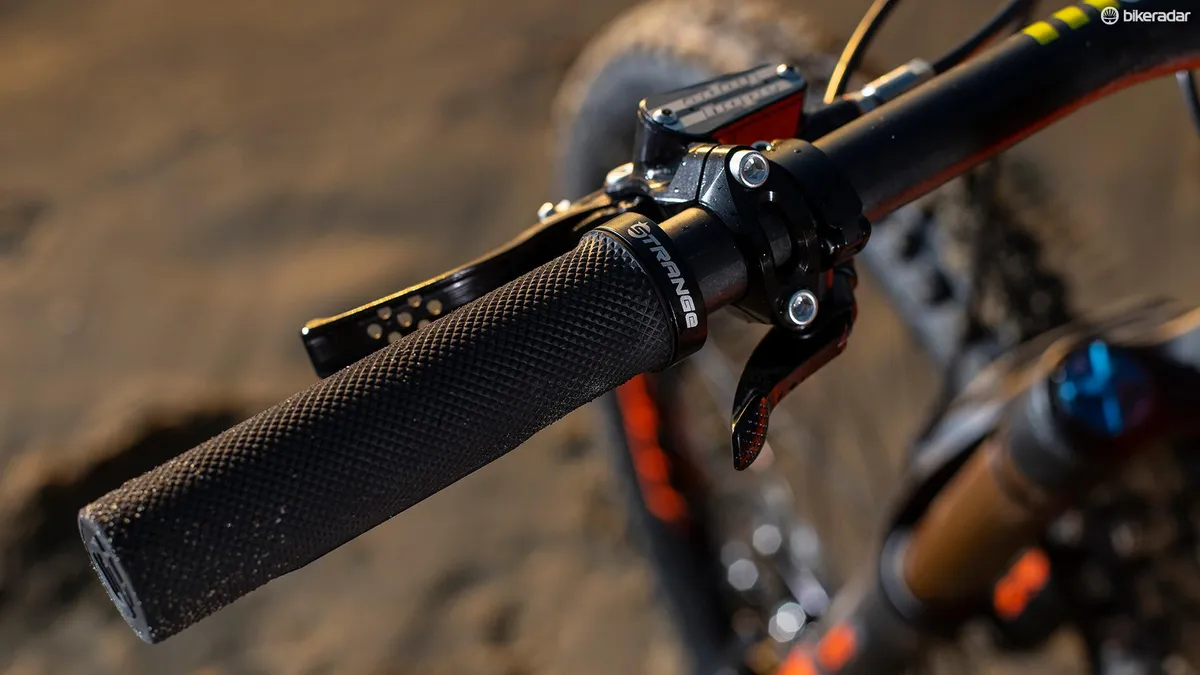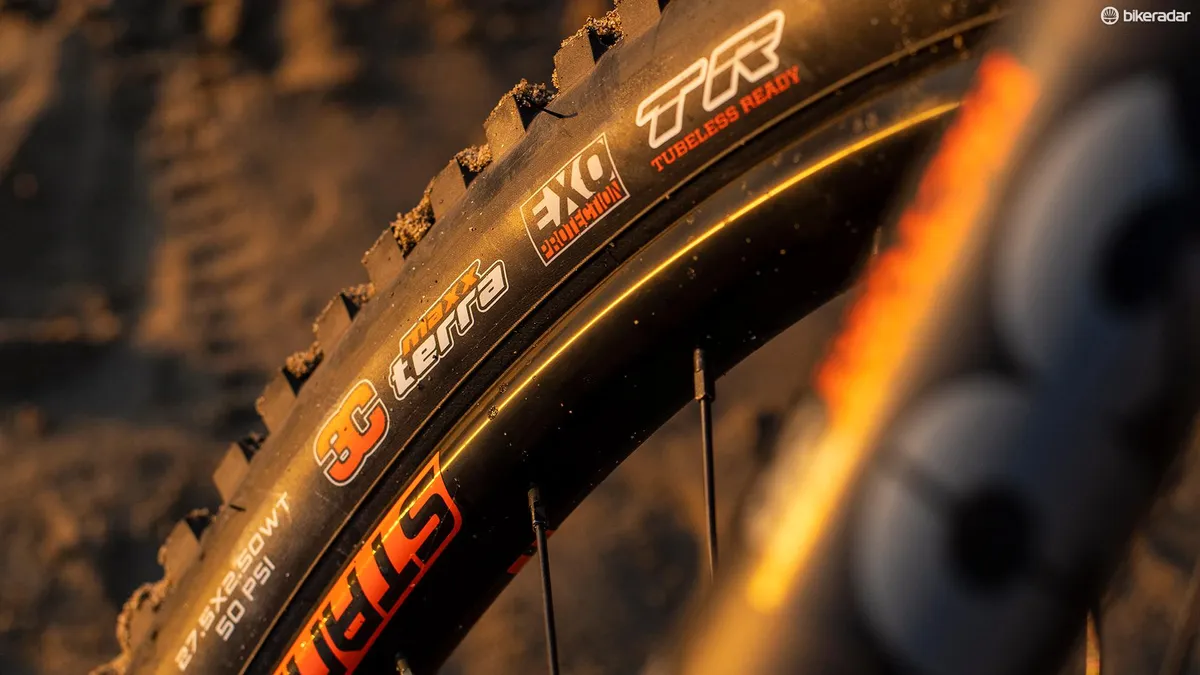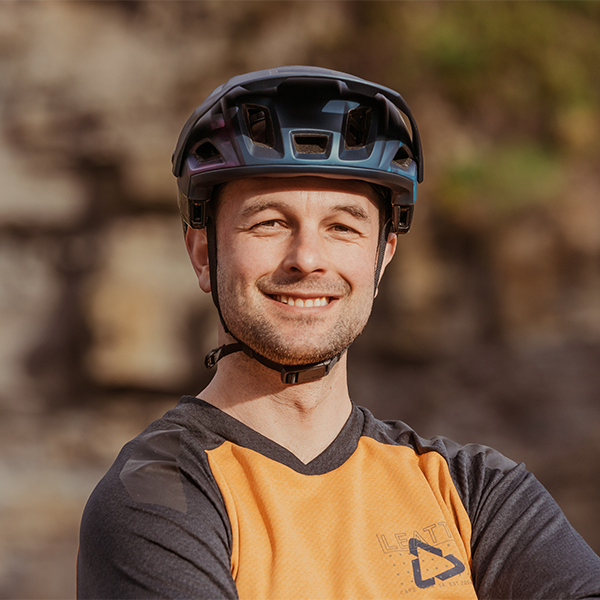Dating back to the year 2000, Orange’s Five has become one of the most important bikes it's ever sold. Over nearly two decades it has morphed and changed with the trends adapting to consumer demands and the ever-changing UK trail centre scene while retaining the original minimal maintenance, maximum fun mantra that’s helped it stand the test of time.
- Orange Alpine 6 Factory first ride review
- The ultimate guide to mountain bike rear suspension systems
- RockShox Reverb AXS wireless dropper post first ride review
Alex loved the new Five, check out his thoughts here
Like its recently-released Alpine 6, the new Five isn’t a dramatic departure from Orange’s proven recipe. The bike’s still got the same outline; it’s still a single pivot, and most importantly, it retains Orange’s hallmark poppy and fun ride characteristics.
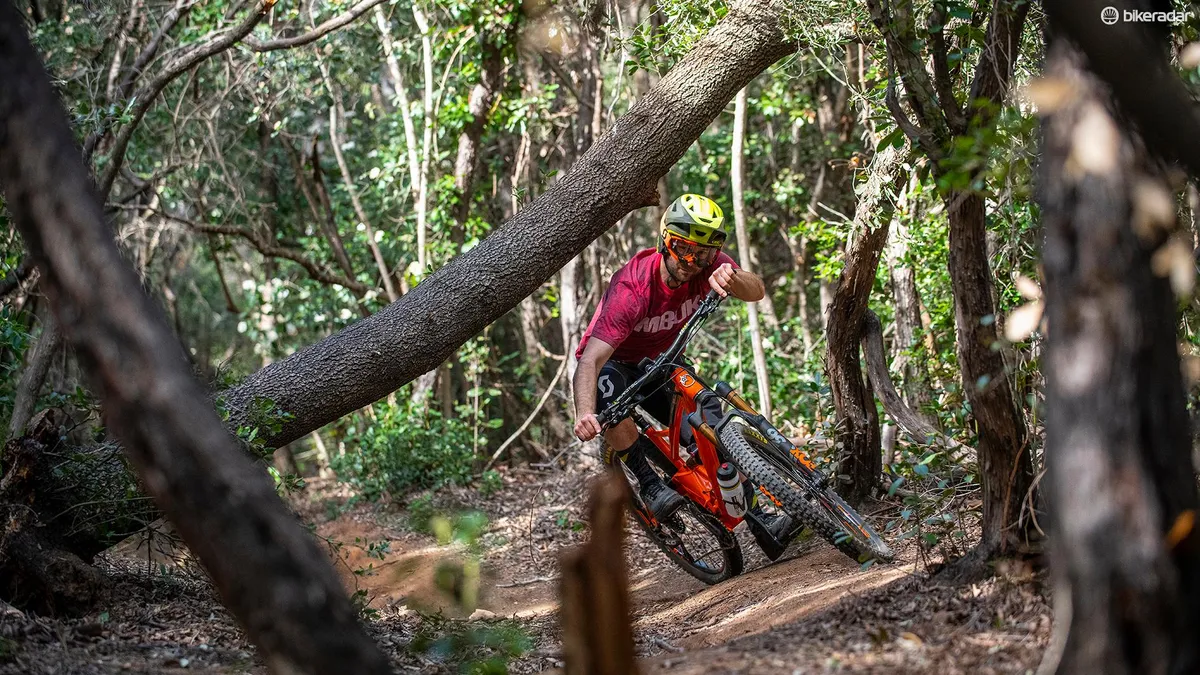
Orange is keen to point out that this bike’s got a wide enough range of applications to be suitable for the all-day trail centre warrior right the way through to someone who’s looking to dabble at enduro or DH racing.
Capable on pretty much any terrain, the brand new Five is a real go-to bit of kit and comes pretty close to a ‘one bike to rule them all’ solution thanks to how its personality changes depending on what components are bolted to it.
Orange Five Factory 2019 frame details
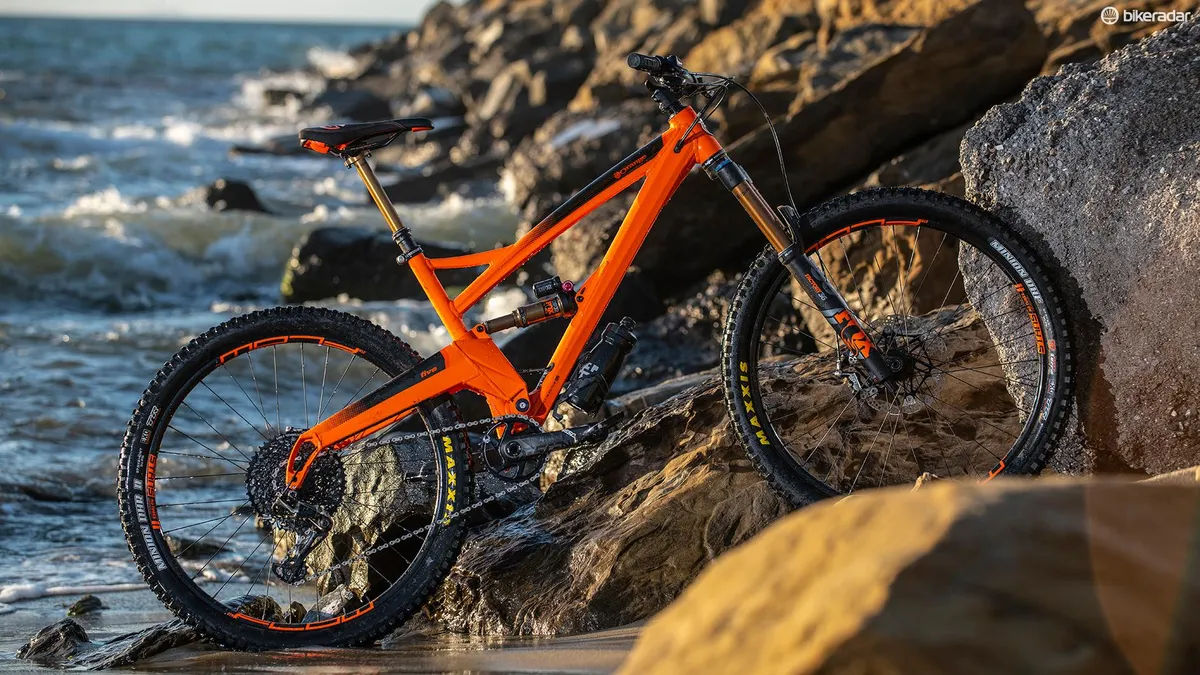
The new Five features some small but interesting changes over the outgoing bike. The front cable routing around the headstock has been modified to help reduce the cables bowing, which was a problem on the previous bike.
And just like its bigger brother the Alpine 6, the Five has undergone some sizing changes. Orange has dropped the XS size but added an XXL. The small size is now smaller than before, though, so if you’re not very big you should still be able to fit on a Five.
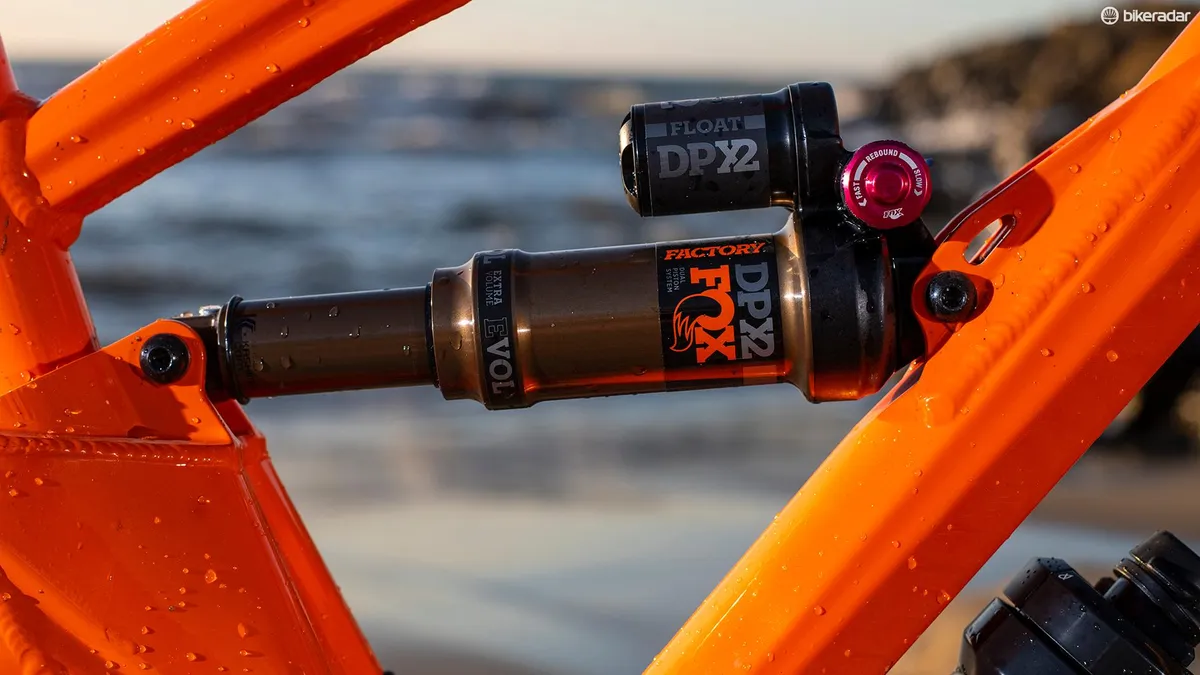
Orange is now using a 210mm eye-to-eye metric shock that delivers 145mm of travel, 5mm more than the outgoing model. It's also managed to make the swingarm lighter thanks to some internal differences around its front end.
The main pivot has been widened by 10mm — 5mm on each side to improve lateral stiffness.
The geometry has also been updated on the new bike. It now sports a slacker 65-degree head angle, 74-degree seat tube angle and a lower bottom bracket (BB) that's sits at 329mm from the ground, 4mm lower than the previous bike. The BB drop has also increased to -25mm (from the axles), which is a full 5mm lower than before.
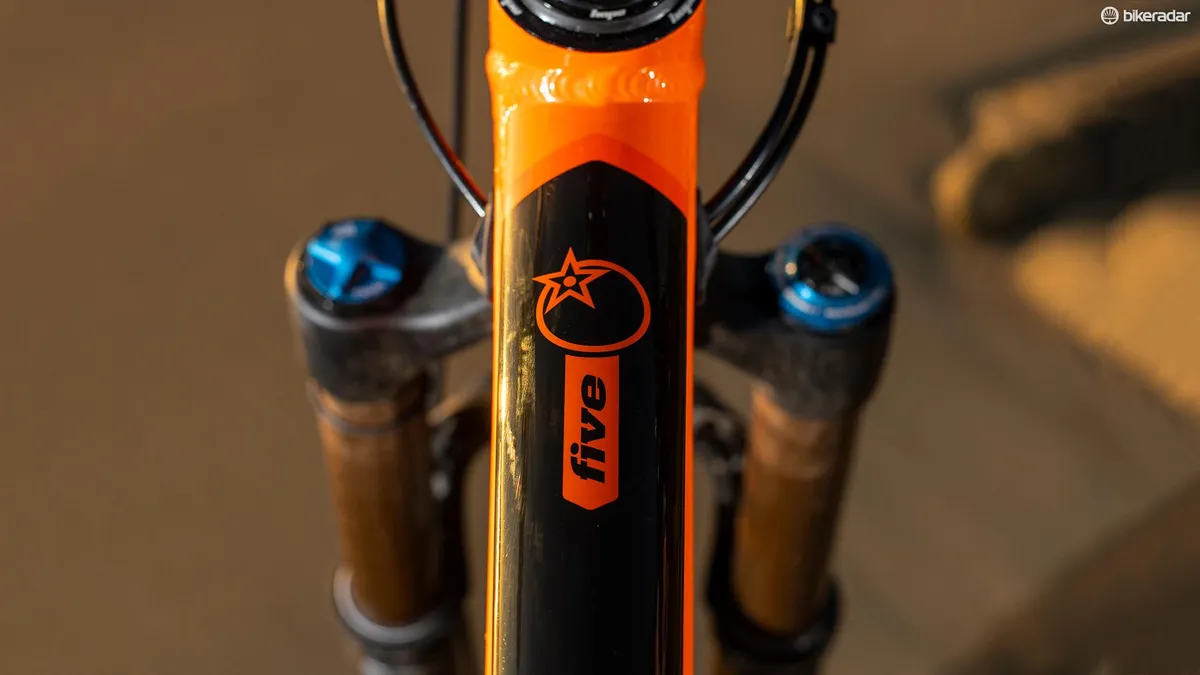
Orange has increased the chainstay figure to 426mm and added roughly 10mm to the reach across all the sizes, and the XXL bike is a massive 502mm.
The bike now has bottle cage bosses on the bottom of the down tube too, just like the new Alpine 6.
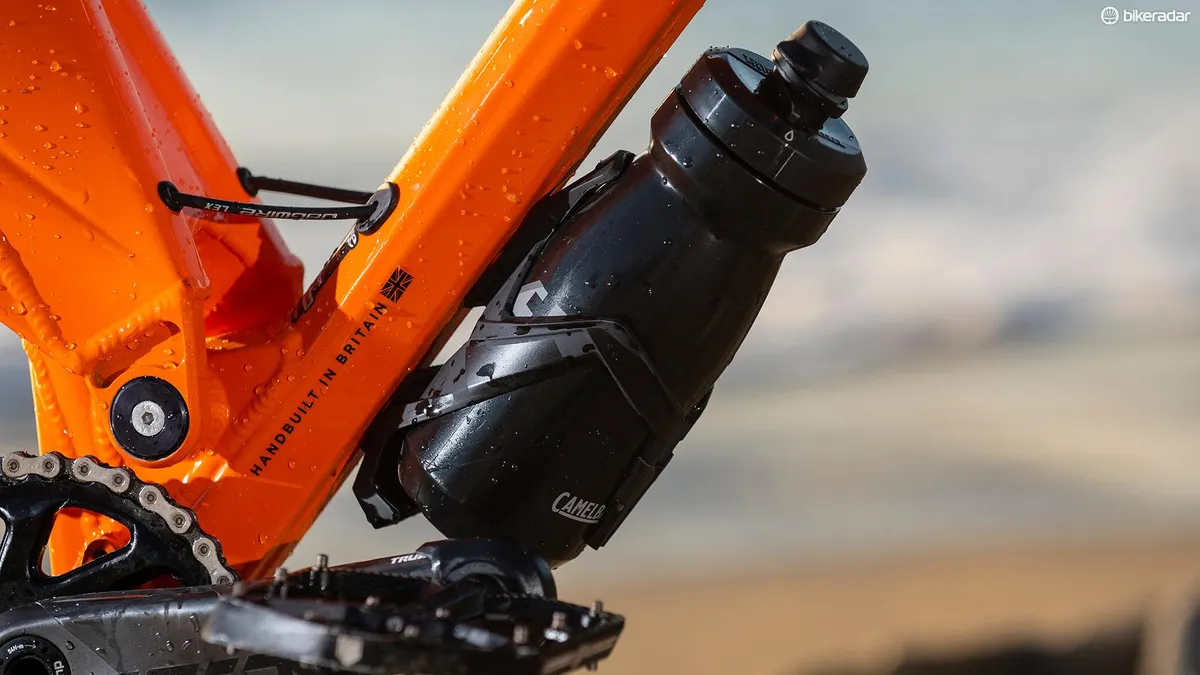
Orange was very keen to point out that each size of its new Five bike, and the rest of their models across its range, have custom tubes with specially-designed butting for each application.
Orange doesn’t order one size of tube or gauge of metal to then cut it down for different frame sizes, potentially doing away with the benefits of having butted tubes. Instead, each tube is custom built for the bike’s intended application and size, and because Orange does everything in-house it's able to quickly react to demands and changes in consumer needs.
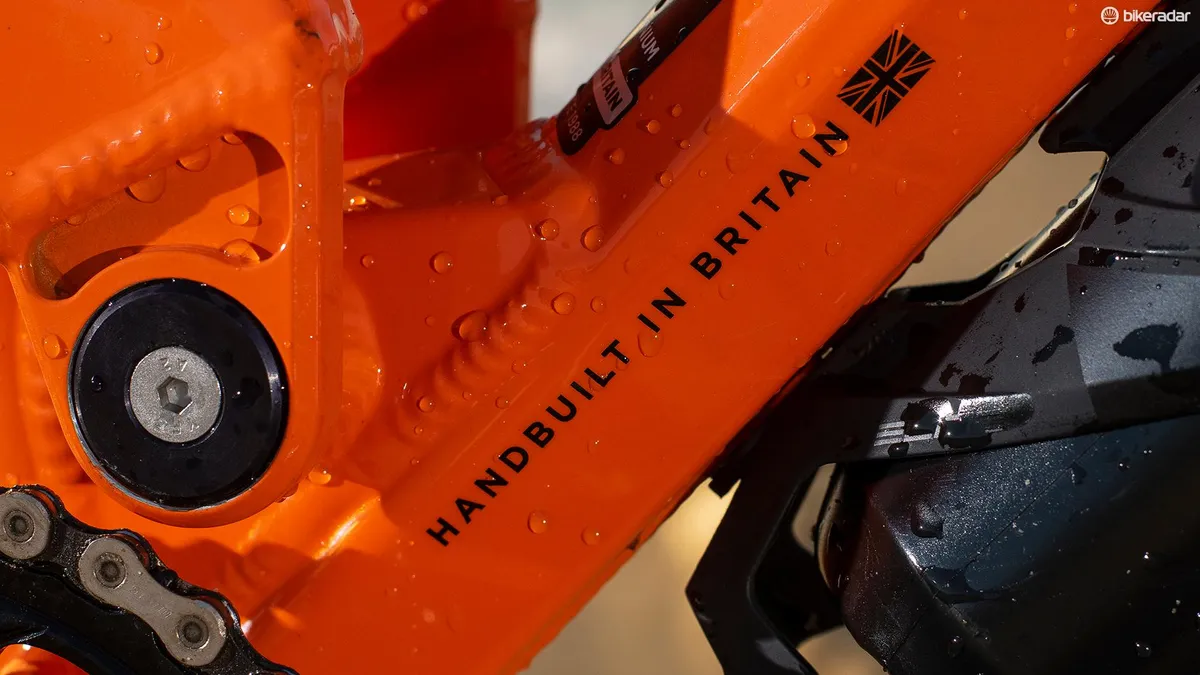
Although Orange openly admits that it won’t implement changes unless it thinks it’ll lead to a performance advantage. This is why we've not seen it adopt metric shock spacing as quickly as other brands, despite having the ability to do so.
Orange Five 2019 geometry
Array
Orange Five 2019 suspension information and performance
Delving into the Five’s suspension kinematics it’s obvious that Orange has gone out to reduce the bike’s anti-squat while trying to keep the suspension’s leverage curve as flat as possible, with a small amount of end stroke ramp up.
Uncompressed, in the 50-tooth cassette ring and with a 34-tooth chainring the new Five has 133 percent anti-squat. At 30 percent sag, the number decreases to 128 percent. Overall, the leverage ratio gets slightly more progressive as the bike compresses but is virtually linear.
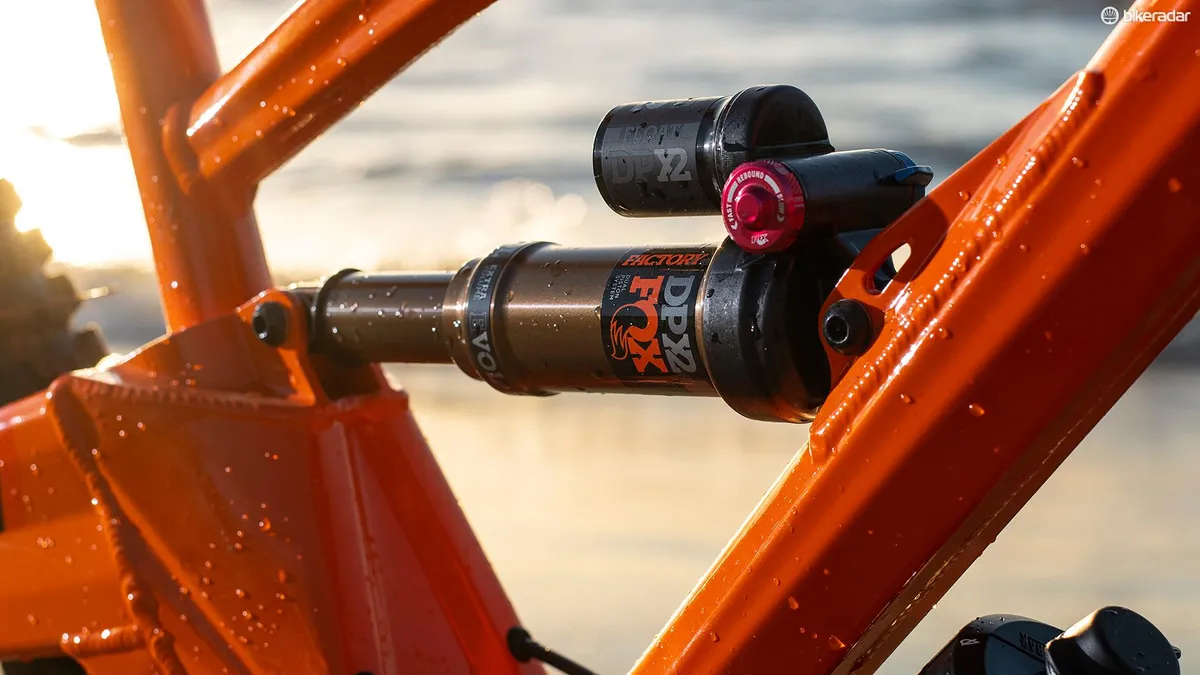
To achieve this, Orange has played with the shock mounting and main pivot locations. Another upshot of these changes is a reduction in pedal kickback and Orange claims this bike has less than its outgoing Five model.
In theory, at least, this should translate to a more absorbent ride where the suspension’s action is less affected by pedalling forces. The linear suspension action should also mean the bike is easier to tune using the shock’s damping and bottom out spacers.
Orange Five Factory 2019 kit and specification details
The Factory bike is Orange’s take on what kit it thinks offers the best performance and it’s hard to argue that the bike’s spec isn’t far off spot on.
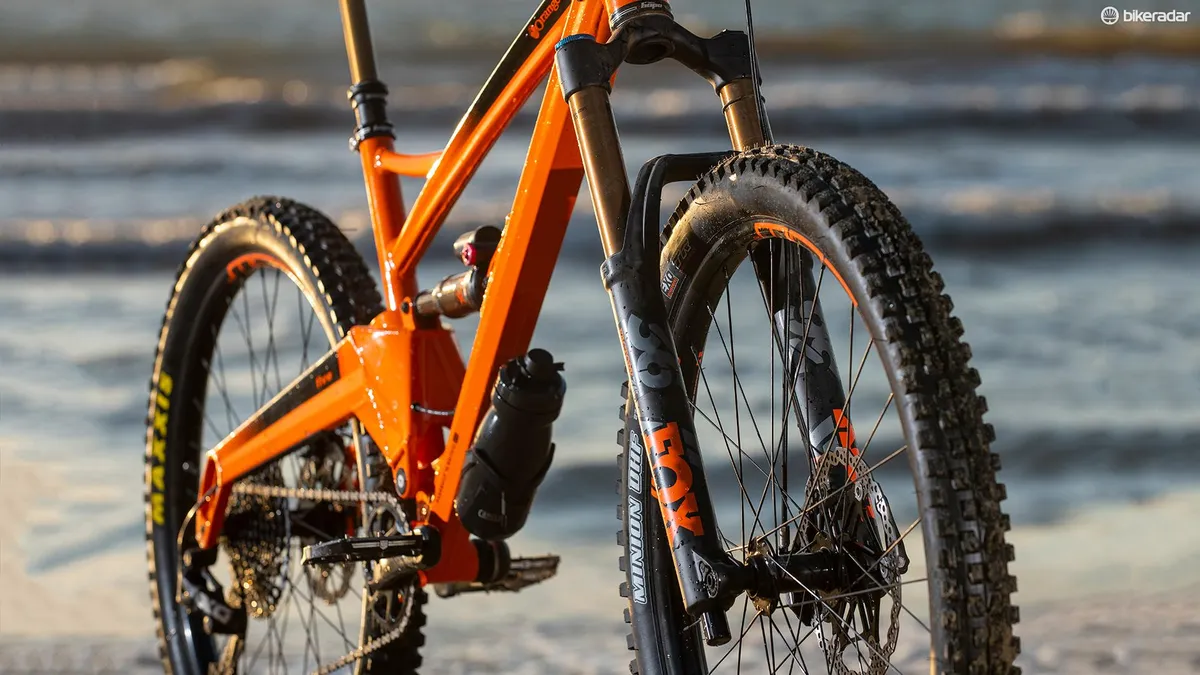
It has a Fox Factory Float 36 with the venerable Grip2 damper that has both high- and low-speed compression and rebound adjustment which is paired with a Fox Float DPX2 Factory shock with a Kashima coated stanchion, a lockout function and low-speed rebound and compression damping adjustment.
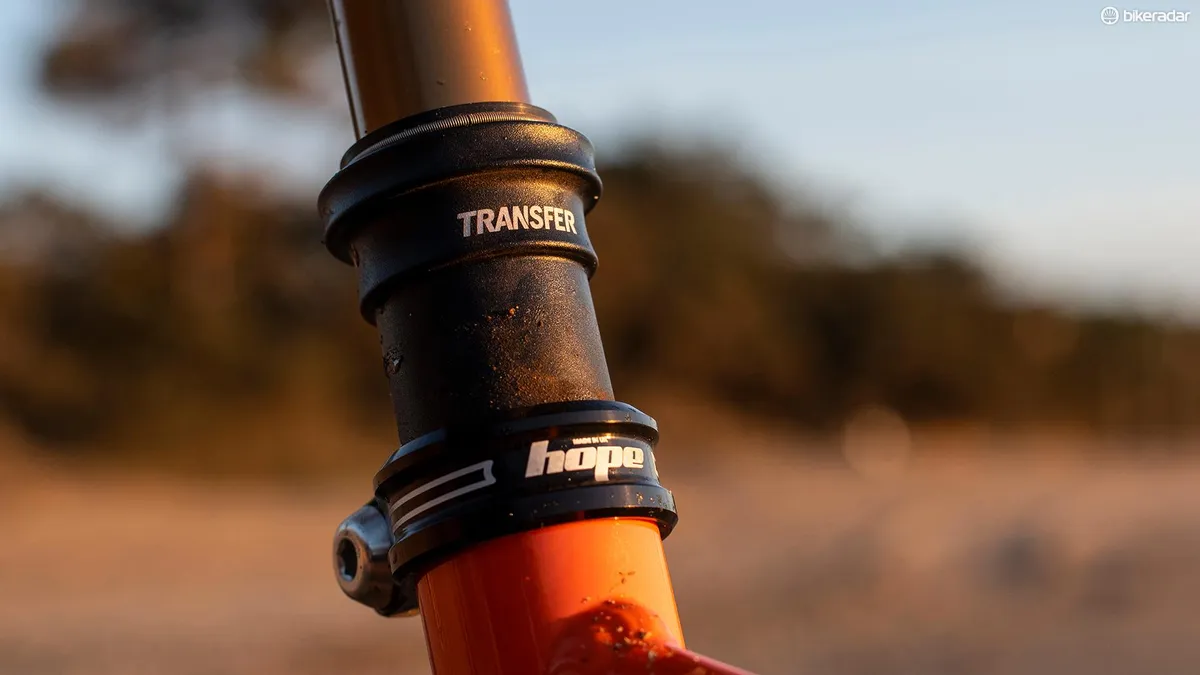
Topping off the Fox kit is a Transfer dropper post with a 150mm of drop and, once again, a Kashima shaft.
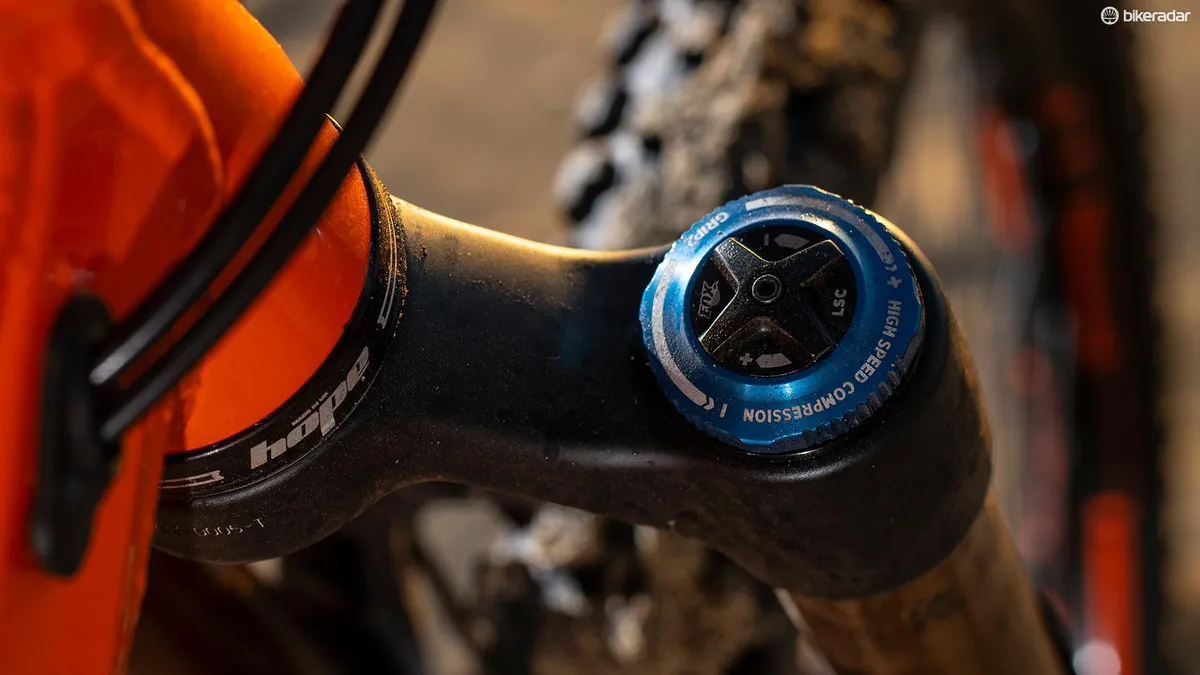
Burgetc RideWide Carbon 35mm clamp bars are mated to Burgtec’s Enduro MK2 50mm long stem. Orange’s own-brand grips and Strange-branded SDG Radar saddle finish off the contact points.
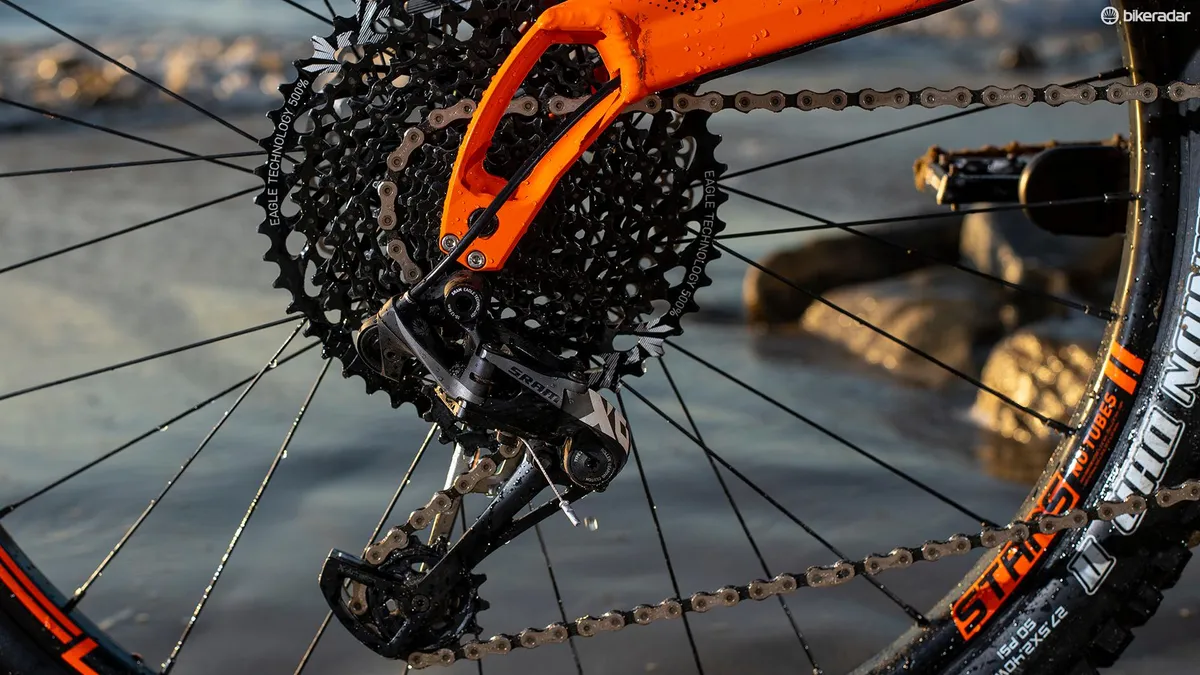
A mix of SRAM X01, Descendant and GX Eagle parts make up the 12-speed drivetrain and Stan’s Flow MK3 rims are laced on Hope Pro 4 hubs. The rims are wrapped in a Maxxis 3C Minion DHF 2.5/DHRII 2.4 wide trail combo.
Hope Tech 3 E4 brakes with a 203mm front and 180mm rear rotor take care of slowing you down.
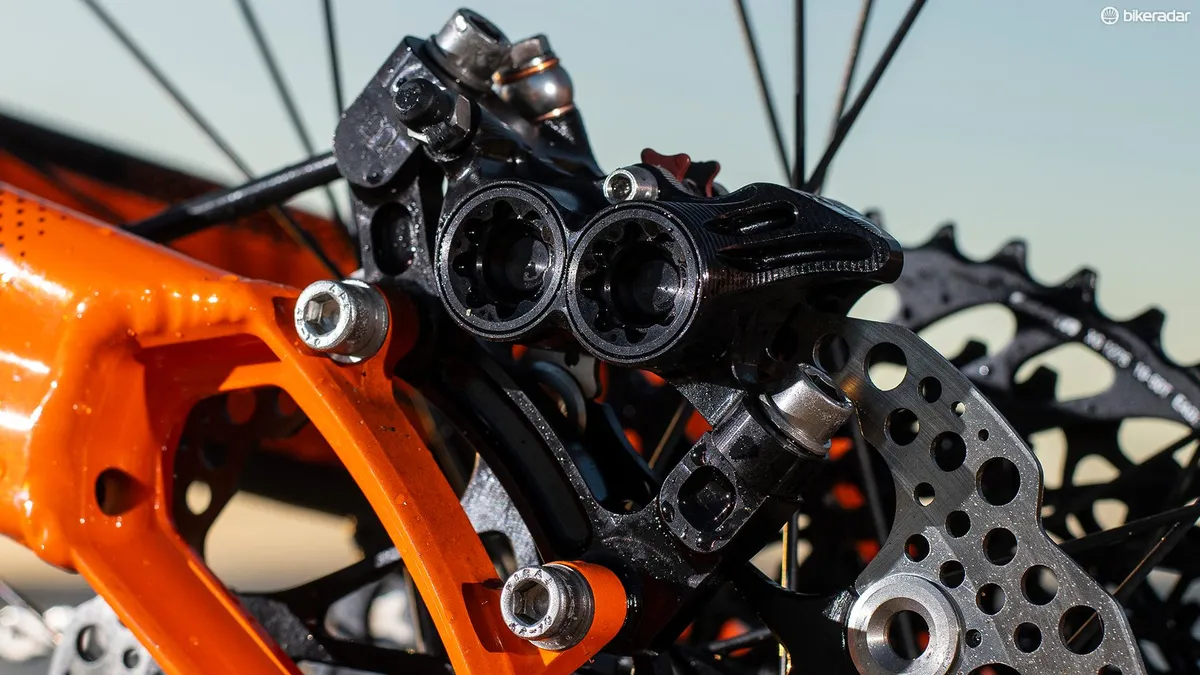
Thanks to Orange’s online configurator, it’s possible to change out certain elements of the bike’s spec, such as the brakes and the colour of the wheels and forks.
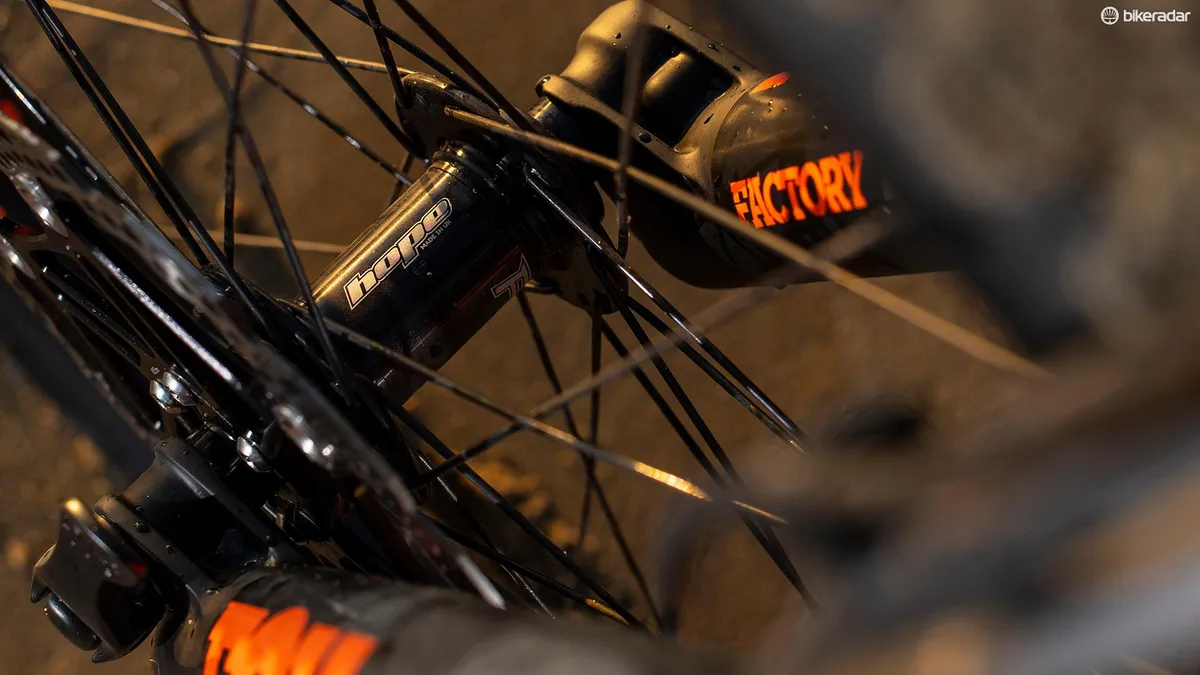
Interestingly, the Pro and RS models in the Five range come with Fox 34 or a 35mm-stanchioned RockShox Pike respectively, which help to give this bike a real split personality: the 34 and Pike are better-suited to trail riding and the 36 more suited to gnarlier descending.
The bike's spec, therefore, helps to define the sort of riding it is most suited to.
Orange Five Factory 2019 ride impressions
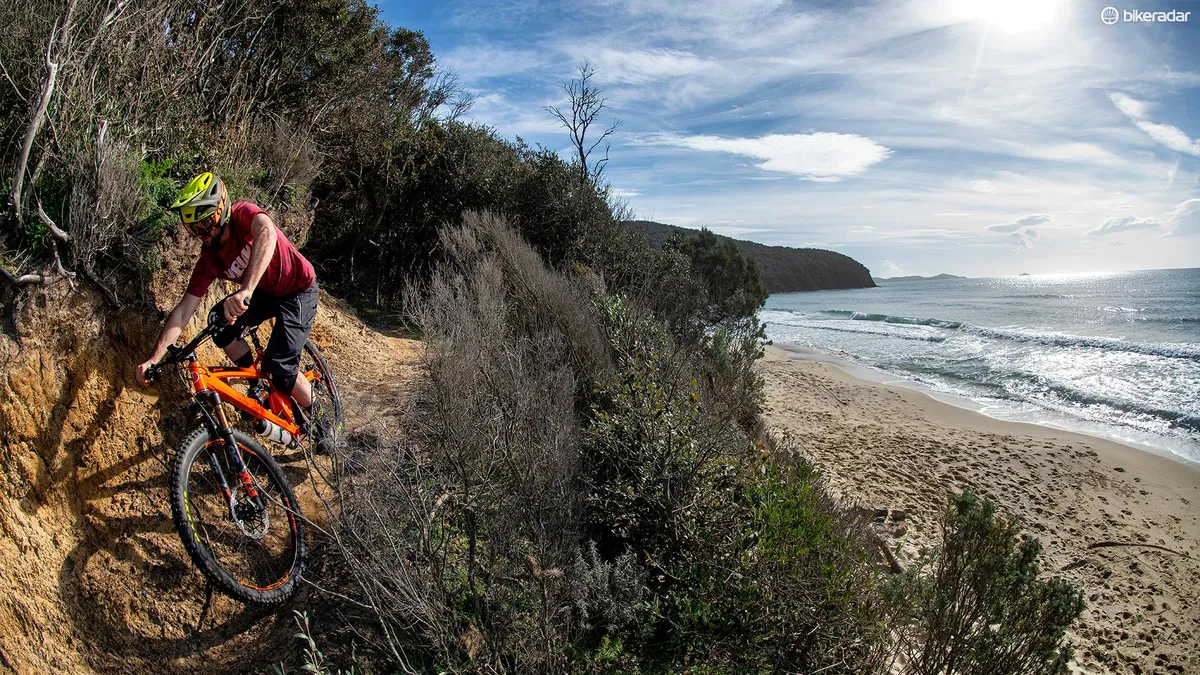
I got to ride the brand-new Orange Five at the Punta Ala Trail Center, which is situated on the gorgeous Tuscan coast in Italy. The trails were dry and dusty, but there was a good mix of rock, hardpack earth and roots on both the climbs and descents to give the bike a solid workout.
Like its bigger brother, the new Five has bottle cage mounts located on the bottom of the down tube near to the bottom bracket. While I am grateful Orange has included this feature on the new bike, it was frustrating having to clean my bottle every time I wanted to drink from it.
Although this could be solved with a bottle that has a cap over the teat, it would be nice if this wasn't an issue. That said, I didn’t lose my 750ml bottle out of the cage while riding but do think that the bottle and bottle cage choice is essential to stop the bottle from being lost.
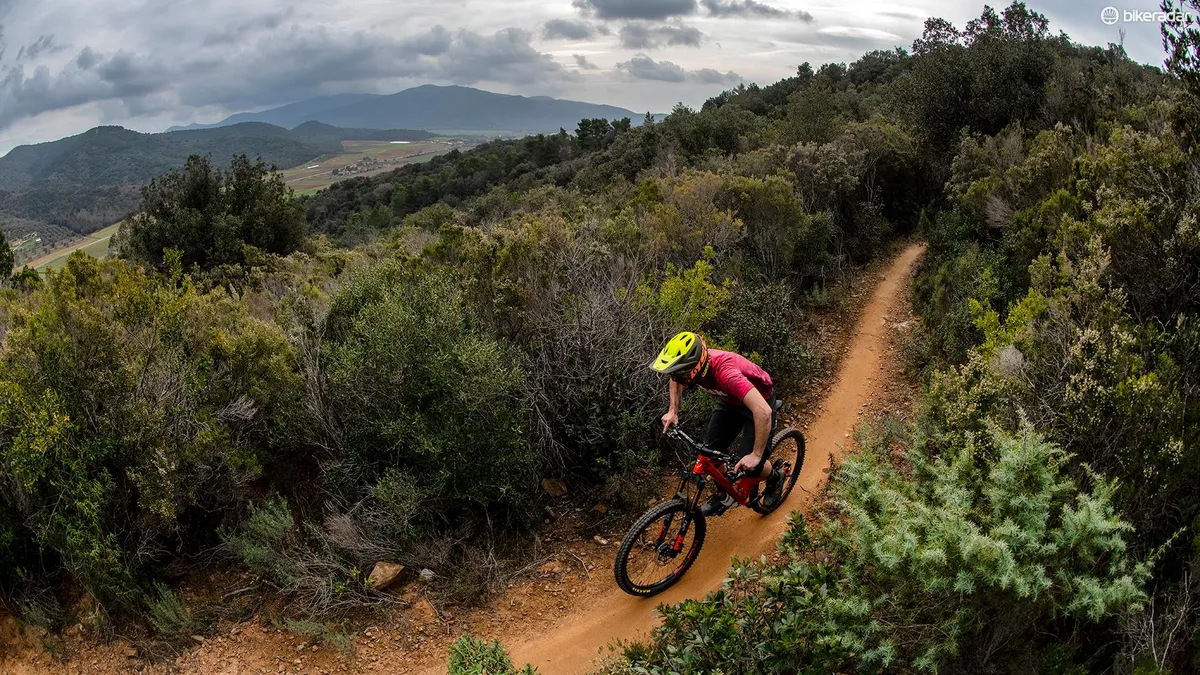
Out on the trail and the first thing I noticed when climbing was the reduction in the bike’s anti-squat. With the DPX2 shock’s lockout feature off, the bike did bob with higher cadence pedal strokes, but it was also willing to absorb smaller bumps in the trail while seated and standing.
The suspension’s suppleness did help with grip, and although the shock’s lockout feature all but eliminates pedal bob it also reduces the bike’s useable grip and therefore increases the amount of effort you’ve got to exert on rougher and looser climbs.
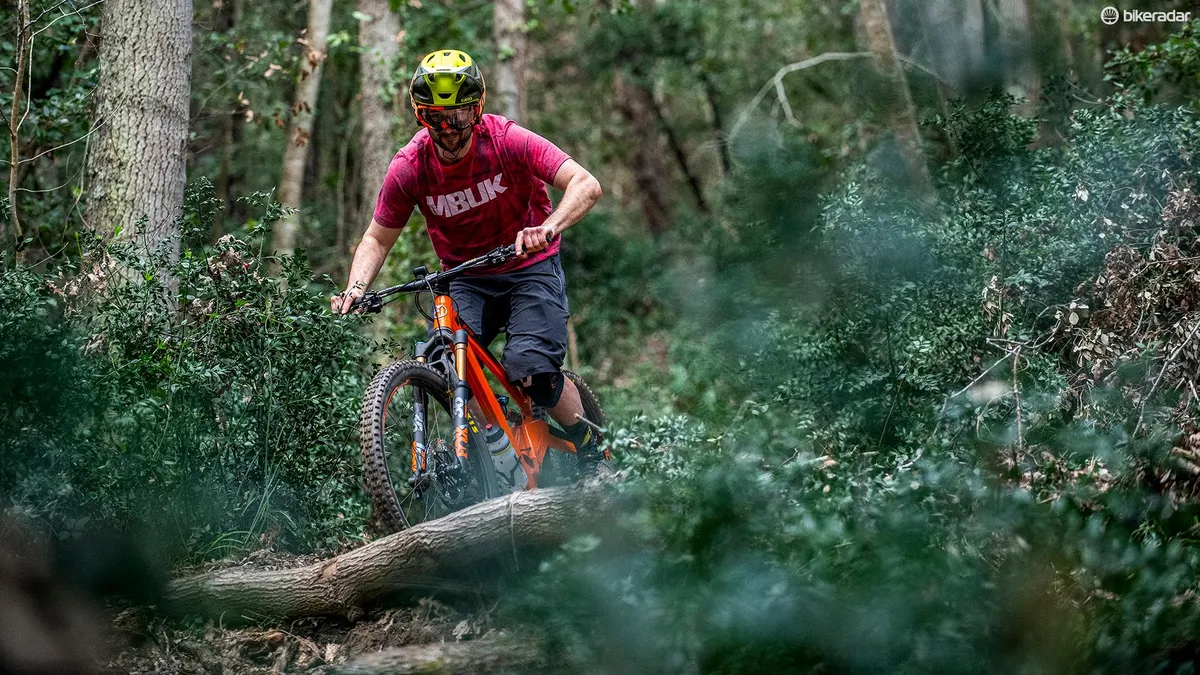
The other advantage the lockout function has on steeper climbs is that it props up the back-end of the bike as your weight transfers rearwards. Normally the bike’s suspension would sag further into its travel the steeper the climb is, but with the lockout engaged there’s enough resistance in the shock’s damping to reduce this.
This means the bike’s dynamic geometry changes less and makes steeper climbs more comfortable. The 74-degree seat angle isn’t especially steep and I still had to adjust my seat as far forward as possible in the seat clamp and angled it down to help with seated climbing comfort.
Even though the anti-squat has been reduced, if you’re pedalling hard the drivetrain’s input does affect the suspension’s compliance on medium to larger bumps. A faster section with medium-sized rocky steps highlighted this problem perfectly.
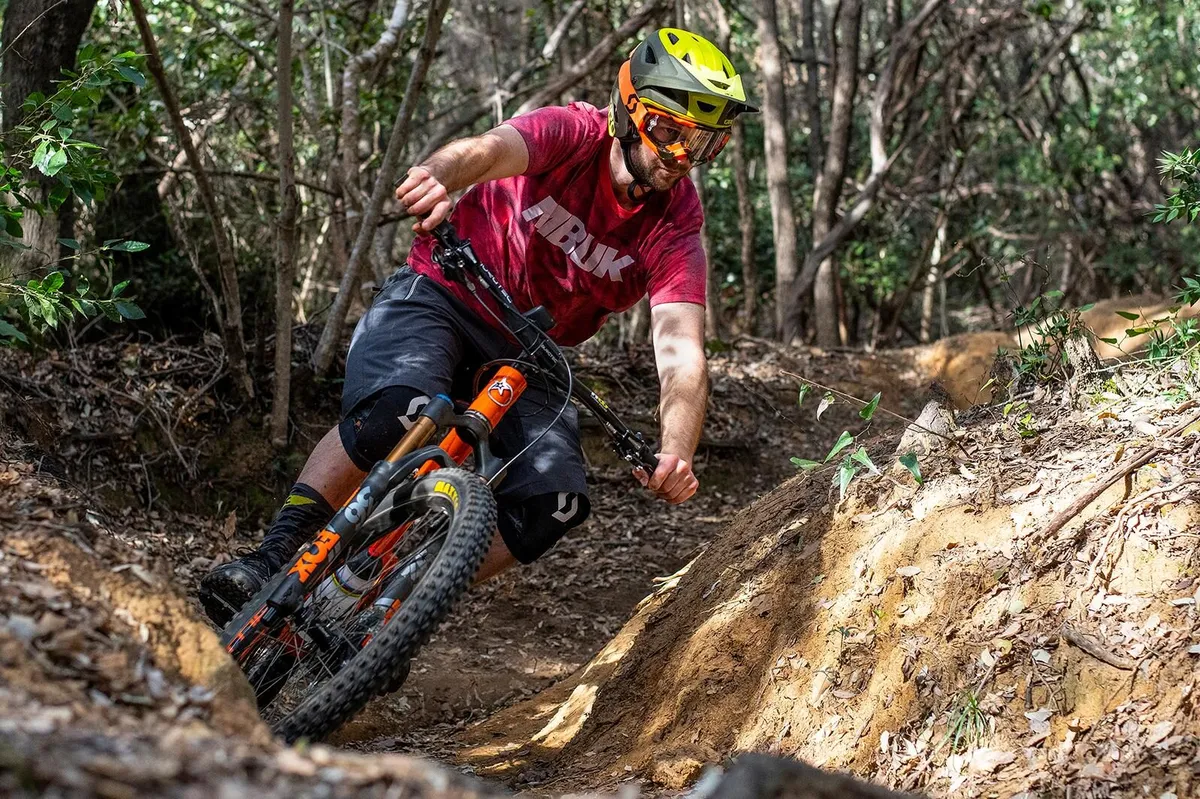
As I hit the bumps unsympathetically, the back end didn’t move up and out of the way, which in turn gave me a kick through the saddle. Although this is something you’d generally expect in varying degrees from most bikes if ridden in this way, some suspension designs aren't as susceptible as Orange's single pivot system.
It’s possible to ride around this trait by reading the terrain ahead and unweighting the bike up and over obstacles rather than expecting it to conquer every bump.
Generally speaking, I found there was plenty of room in the cockpit while climbing and the bike was easy enough to keep on line as long as I was actively involved in the ride.
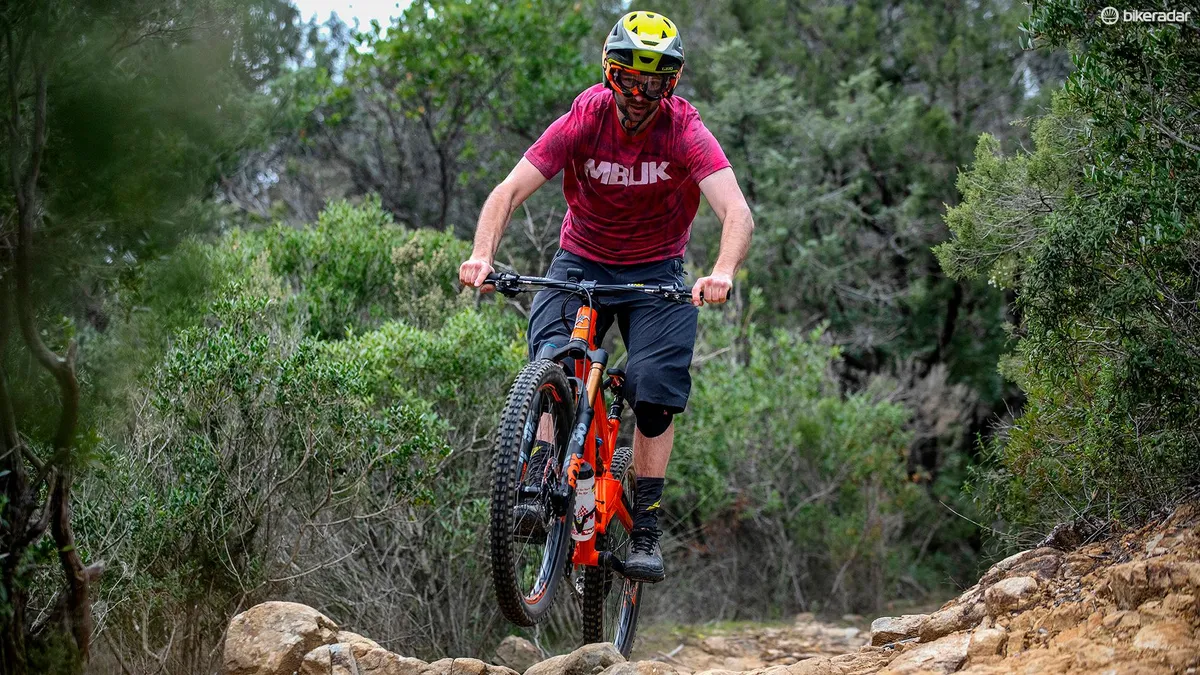
Descending is when the new Five really comes alive, though. It’s an exceptionally fun, lively and poppy bike to ride but doesn’t feel twangy or overly snappy.
The 65-degree head angle felt slack enough for a 145mm travel bike that, when coupled with the 1,217mm wheelbase and 433mm chainstays, made it stable and predictable too.
In fact, I kept forgetting that the bike only has a 145mm of travel, ploughing into rough, rocky and rooty sections expecting near DH-bike like performance. This is in part thanks to the Fox 36 fork and in part down to the bike’s confidence-inspiring feel created by its geometry.
Like most of the rest of Orange's single pivot bikes, it wasn’t the most forgiving ride unless I was actively looking to pump bumps to generate speed, hop obstacles and engage with the trail, and it was possible to choke the suspension and get kicked off-line with careless riding.
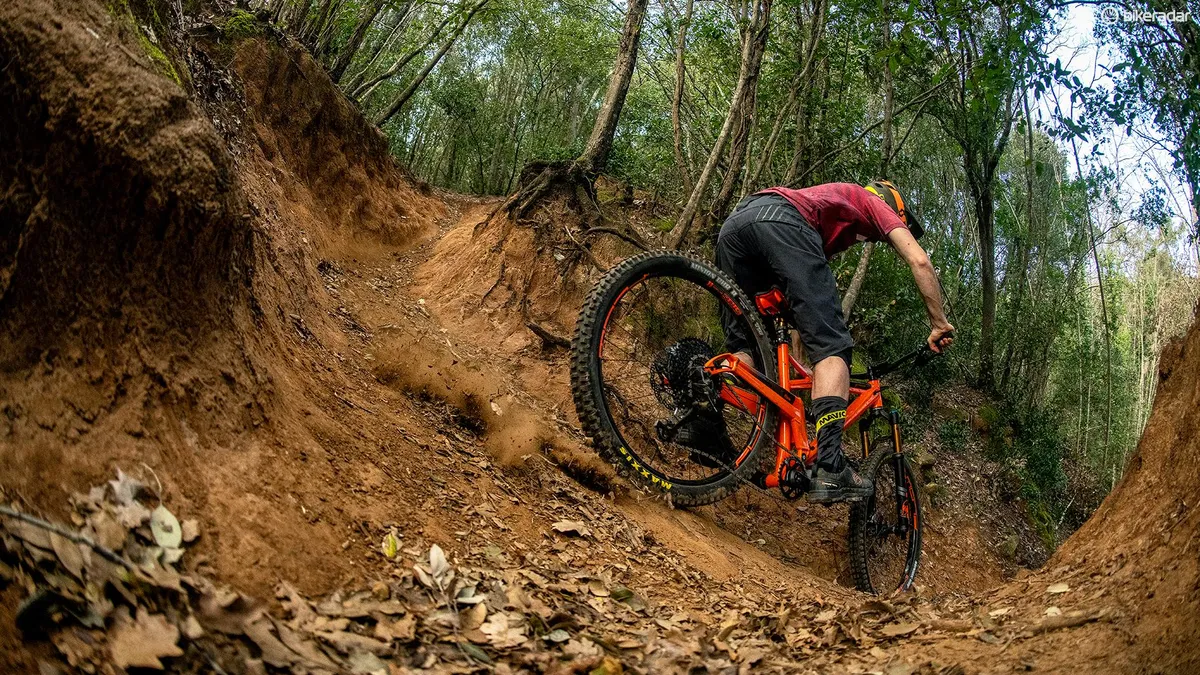
But when I was riding at full chat and on form, the bike offered a fantastic balance between line choice accuracy and great trail feedback.
As I mentioned before, the Factory model is certainly more DH-focussed and it would be interesting to ride the Fox 34 and Float DPS suspended model to see how it rides in comparison.
Overall, I think this a great iteration of the Orange Five that addresses some of the complaints and criticisms it's received while not straying from that awesomely fun ride-feel that lets you know you’re riding an Orange.
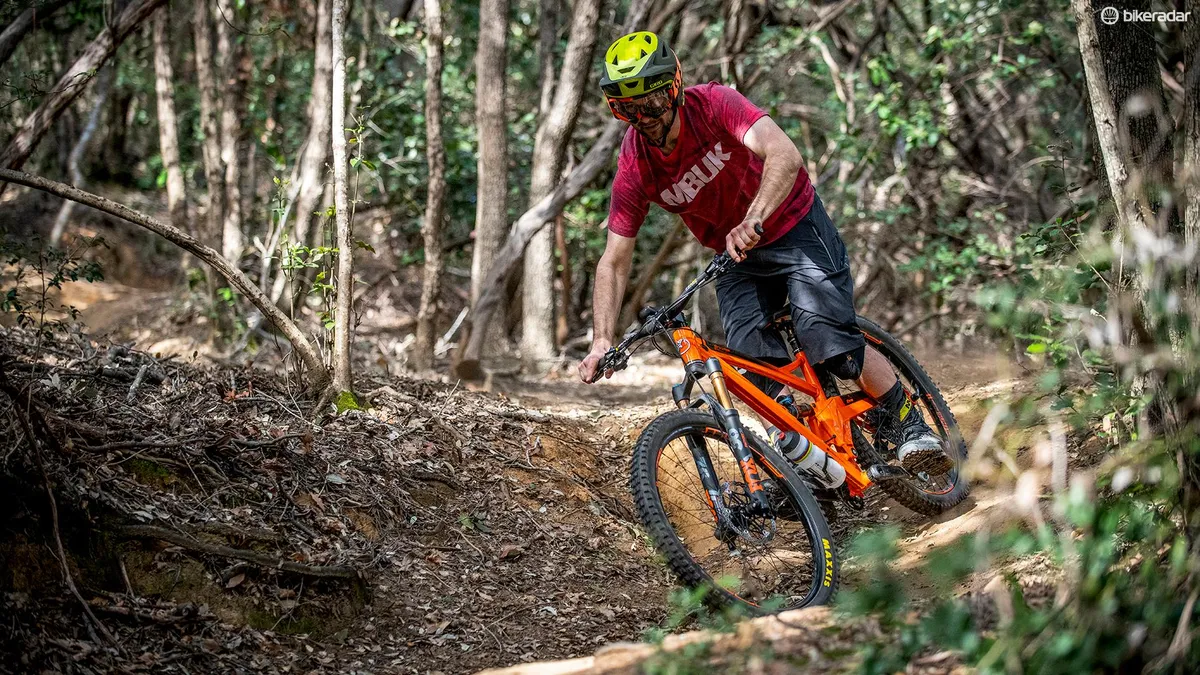
Orange Five Factory early verdict
Orange has managed to produce a fantastically fun but highly capable trail bike that'll do a lot more than just your local trail centre loop if you spec the right parts on it.
Expect a typically-Orange ride that gives as much back as you can be bothered to put in but it isn't especially forgiving if you do get it wrong.
